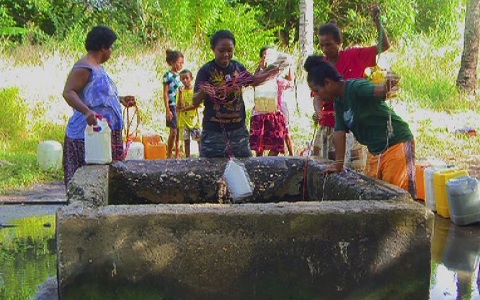The search for clean drinking and cooking water has caused many burdens for women and children in many parts of Papua New Guinea.
In some parts of the country, women have to walk long distances, even over rugged and rocky tracks to fetch clean water.
In Kido village, about eight kilometres west of the Liquefied Natural Gas (LNG) plant site, in Central Province, women and children transport water back and forth on foot as part of their daily chores.
Women and girls wake up as early as five in the morning each day to fetch water for cooking and drinking.
Because many of the villagers are living on the beach, it means that they have to hike up over the mountain separating the villages from their water source.
They carry bundles of containers to the nearby well, and after refilling them, they have to carry two or three at a time, back to their Newss.
It’s an everyday practice and even small children become used to this routine.
Similar experiences can also be seen in many settlements in Port Moresby.
The lack of clean water and sanitation has placed PNG 12th out of the 15 Pacific nations, and is ranked poorly in the East Asia Pacific Region.
Unless significant improvements are implemented soon, the country will not meet its expected water and sanitation targets outlined in the Millennium Development Goals 2015.
https://youtube.com/watch?v=rCyPC64ylhg%3Ffeature%3Doembed%26wmode%3Dopaque%26showinfo%3D0%26showsearch%3D0%26rel%3D0


